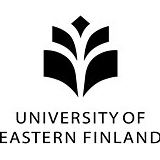 701-800
701-800 


The University of Eastern Finland is the most multidisciplinary university in Finland. Our high standard of interdisciplinary research and education respond to global challenges and build a sustainable future. Our research is ranked among the best in the world in several fields. We offer education in nearly 100 major subjects and we train experts for tomorrow’s changing labour market needs. With approximately 16,000 degree students and 3,200 members of staff, the University of Eastern Finland is one of the largest universities in Finland. The university's campuses are located in Joensuu and in Kuopio. The university comprises four faculties: the Philosophical Faculty, the Faculty of Science, Forestry and Technology, the Faculty of Health Sciences, and the Faculty of Social Sciences and Business Studies. The activities of the university underscore multidisciplinarity. The university's key interdisciplinary research areas are built around four global challenges: Ageing, lifestyles and health; Diversifying learning and interaction; Cultural encounters, mobilities and borders; and Environmental change and sustainable use of natural resources. The well-being of students is among the primary concerns of the university and, in addition to the high standard of teaching, the university offers its students a modern study environment, which is under constant development. The university considers international cooperation and internationalisation as one of the cornerstones of its activities. The university is involved in several international networks and has concluded bilateral agreements on cooperation with numerous universities globally. The university's teaching and research staff and students are active in participating in various mobility programmes. With its extensive networks, this multidisciplinary and international university constitutes a significant competence cluster. Open science, education and innovation activities are at the core of the impact strategy of the university. The University of Eastern Finland was established in 2010 as the result of the merger of the University of Joensuu and the University of Kuopio.
 701-800
701-800 
| Subject | Rank |
|---|---|
Ecology | 76-100 |
Nursing | 76-100 |
Hospitality & Tourism Management | 76-100 |
Agricultural Sciences | 101-150 |
Law | 101-150 |
Atmospheric Science | 151-200 |
Environmental Science & Engineering | 151-200 |
Dentistry & Oral Sciences | 151-200 |
| Undergraduate Programs |
|---|
Forestry |
History |
Business and administration |
Language acquisition |
Religion and theology |
Law |
Education science |
Teacher training with subject specialization |
Training for pre-school teachers |
Health sciences |
Pharmacy |
IKnformation and communication technologies (ICTs) |
Biochemistry |
Biology |
Natural sciences, mathematicd and statistics |
Chemistry |
Earth sciences |
Environmental sciences |
Mathematics |
Physics |
Statistics |
Economics |
Social and behvioural sciences |
Political sciences and civics |
Psychology |
Sociology and cultural studies |
Literature and linguistics |
Teacher training without subject specialization |
| Graduate Programs |
|---|
Forestry |
History |
Language acquisition |
Literature and linguistics |
Religion and theology |
Business and administration |
Law |
Education science |
Teacher training with subject specialization |
Teacher training without subject specialization |
Dental studies |
Health sciences |
Medicine |
Pharmacy |
Information and communication technologies (ICTs) |
Biochemisty |
Biology |
Natural sciences, mathematics and statistics |
Chemistry |
Earth sciences |
Environmental sciences |
Mathematics |
Physics |
Statistics |
Social and behavioural sciences |
Political sciences and civics |
Psychology |
Sociology and cultural studies |